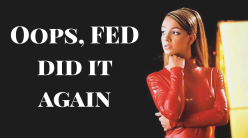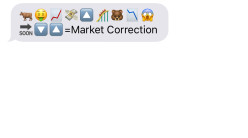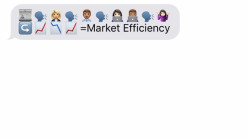Regulatory rules are enforced throughout the financial industry to prevent crooks and infamous finance “moguls” from exploiting others for money. So why do we hear compliance issues on a daily basis with big name corporations? Or most recent events, Wells Fargo allegedly creating false accounts and cross-selling their very own loyal customers to meet sales quotas. Before you read into this, I console for those who have been impacted by Wells Fargo and their acts of malfeasance; but I promise you, there is light at the end of the tunnel if you read into this fully!
Just like Wells Fargo, publicly traded companies have something called quotas to meet, a metric to evaluate performance and progression. John Stumpf, the standing CEO and Chairmen of Wells Fargo, went to Wall Street executives and anlaysts to pitch them on how Wells Fargo is a value company and that everyone should invest into it. He made this pitch by pushing cross-selling methods across the large retail banking sector, and subsequently after, Wells Fargo started pushing more products per household. In fact, the average product per household across the retail banking sector was three, and John Stumpf enforced a quota of eight with Wells Fargo. Yes that's right, eight products per household! By 2014 annual reports released that Wells Fargo has hit a record with a ratio of 6.1 products per customer. Wells Fargo stock appreciated by $30 and executives immediately starting celebrating as analysts were posting a strong "buy" recommendation of WFC stock. Most unfortunately, Stumpf saw an appreciation of $200 million from his share of the company. The worst part is that low-level employees being pressured to hit these diffcult metrics, began cross-selling vigoriously and lost sight of ethics to prevent themselves from hitting the streets of unemployment. This eventually progressed to creating roughly 2 million unauthorized accounts in the span of a few years. When push came to shove, fingers were pointed at hourly paid employees that were simply executing orders from upper level employees. In fact 5,300 employees took the fall and dealt with the repercussions Wall Street executives should have been accountable for.
Quick Tip: If you have a checking/savings account with Wells Fargo, now would be the time to give them a call to verify no additional accounts were created that you didn’t authorize.
Throughout the duration of this scandal, Wall Street executives were walking away with big bonus checks, and Carrie Tolstedt retires with over $120 million from stock appreciation and awards. Carrie Tolstedt? Yes, the executive that ran the retail banking division overseeing the creation of these 2 million fake accounts walks away with a big check. That makes our stomach turn too but wait it gets worse. Authorities recently discovered this fraud and the CEO? Stumpf admitted fault and CNBC was recently able to corroborate that John Stumpf will not be stepping down from his position. WOW! And worstly, sales tactics on the end of financial representatives were criticized for being too aggressive by not adhering to the customer-needs basis; the schematics of this company completely altered just to meet these hefty fourth quarter goals.
What the heck right? And this is only one of numerous situations that have escalated; from companies falsefying the legtimicy of mortgage backed securities in 2008, to madoff, and hundreds of other cases you have seen in the news growing up. So you must be wondering, are all financial firms operating on this unethical scheme, and do we have to deal with financial representatives that claim to “prioritize your needs first?” The answer is no, well at least for firms like Orca and our partner firms. We believe in a responsibility to align our incentives and motives with yours; to build a long-lasting relationship with our clients. Better yet, we have a Fiduciary responsibility as they say. Fiduciary, meaning to put the needs of your clients before your own; and the severity of the consequences of not doing so are unbearable. The fiduciary standard is applicable throughout a large spectrum of the financial industry; from investment advisors to RIAs and retirement planning and so much more. At Orca we have created a philosophy of educating people, the world out there can be dark and fraudulent but the better educated you are, the better investment decisions you can make down the road. Next time you come across an advisor, ask the question, are you a fiduciary advisor? Or better yet work with one of our partnered advisers that we know are and follow our Orca mantra!











